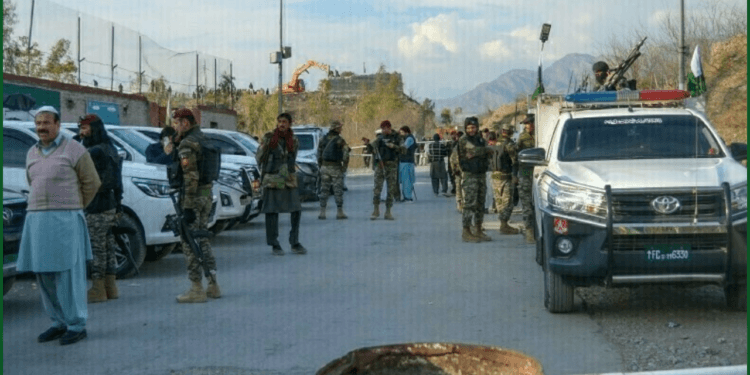In a dramatic escalation of tensions in Thatta, a group of protesters attacked the convoy of State Minister for Religious Affairs, Kheeal Das Kohistani, during a demonstration against controversial irrigation canals. The incident, which took place on Saturday, has sparked outrage among government officials and prompted calls for swift action.
The clash occurred as Kohistani’s convoy passed through an area where members of local nationalist groups were holding a rally. The protesters, frustrated over the canal project, which they claim threatens their livelihoods, expressed their anger by hurling stones, eggs, and tomatoes at the minister’s vehicle. Chants of anti-government slogans filled the air as the situation grew tense. Despite the hostility, the convoy managed to exit the area without any reported injuries or significant damage.
Federal Information Minister Attaullah Tarar denounced the incident as an “unacceptable assault” on an elected official. In a statement, he emphasized the need for respect toward public representatives and called for a comprehensive investigation. Tarar reached out to Sindh’s Inspector General of Police, Ghulam Nabi Memon, demanding a detailed report on the incident. He also instructed the federal interior secretary to compile an independent account of the events.
“Such acts of violence against public servants cannot be tolerated,” Tarar said. “The Sindh government must ensure a transparent probe and hold those responsible accountable.”
Sindh Chief Minister Syed Murad Ali Shah echoed Tarar’s sentiments, condemning the attack as a violation of law and order. “No individual or group can be allowed to act above the law,” Shah declared. He directed the Hyderabad Deputy Inspector General to apprehend the perpetrators immediately and provide a thorough report on the circumstances surrounding the incident.
The attack has intensified pressure on local authorities to address both the unrest over the irrigation canals and the security of public officials. The canal project, which has been a point of contention for months, has fueled protests from communities who fear it will disrupt their access to water and harm agricultural lands. Nationalist groups have been particularly vocal, organizing frequent demonstrations to demand the project’s suspension.
As investigations begin, the incident has raised broader questions about managing public dissent and ensuring the safety of government officials in volatile regions. Authorities have vowed to take strict measures to prevent similar occurrences in the future, while community leaders are calling for dialogue to address the underlying grievances driving the protests.
The situation remains fluid, with all eyes on how the Sindh government will balance accountability with efforts to de-escalate tensions in Thatta.

















































